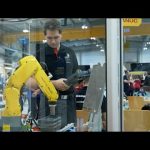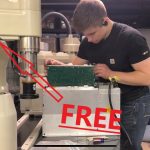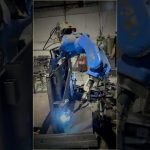Check out the leading manufacturer for professional coil packing solutions right here:
Researchers at the Max Planck Institute for Biological Cybernetics in Tübingen, Germany, have recently made a groundbreaking discovery in the world of robotics. By utilizing their expertise in engineering and cutting-edge technology, they have successfully transformed an industrial robot arm into a state-of-the-art F1 Ferrari simulator. This innovative project showcases the immense potential of industrial robot arms in the field of virtual reality and simulation.
The Max Planck Institute for Biological Cybernetics is renowned for its groundbreaking research in the field of cybernetics, which focuses on the study of control and communication in machines and living organisms. Their team of brilliant engineers and researchers have consistently pushed the boundaries of what is possible in the world of robotics, and this latest endeavor is no exception.
The project involved taking a standard industrial robot arm and retrofitting it with the necessary components to create a fully immersive F1 Ferrari simulator. By integrating high-resolution screens, motion sensors, and advanced control algorithms, the researchers were able to recreate the thrilling experience of driving a Formula 1 race car.
The industrial robot arm, typically used for heavy-duty tasks in manufacturing and assembly lines, proved to be the perfect platform for this ambitious project. Its robust construction and precise movements allowed for a realistic simulation, while its versatility and programmability made it adaptable to the demands of the F1 simulator.
The transformation of the industrial robot arm into a cutting-edge F1 Ferrari simulator opens up a whole new world of possibilities in the field of virtual reality and simulation. This technology has the potential to revolutionize the way we train professional drivers, conduct research in the automotive industry, and even entertain racing enthusiasts.
Imagine being able to experience the thrill of driving a high-performance race car without leaving the comfort of your home. With the advancements made by the researchers at the Max Planck Institute for Biological Cybernetics, this dream is now a reality. The F1 Ferrari simulator offers a truly immersive experience, complete with realistic visuals, motion feedback, and precise control.
The implications of this project extend far beyond the realm of virtual reality. By demonstrating the capabilities of industrial robot arms in a completely new domain, the researchers have opened doors to endless possibilities. This breakthrough could inspire further advancements in the field of robotics, leading to more innovative applications and solutions.
The Max Planck Institute for Biological Cybernetics continues to push the boundaries of what is possible in the world of robotics. Their team of talented engineers and researchers are constantly exploring new avenues and seeking innovative solutions. This latest project is a testament to their dedication and expertise.
In conclusion, the transformation of an industrial robot arm into a cutting-edge F1 Ferrari simulator by the researchers at the Max Planck Institute for Biological Cybernetics showcases the immense potential of robotics in the field of virtual reality and simulation. This groundbreaking project opens up new possibilities for training, research, and entertainment. The future of industrial robot arms is undoubtedly exciting, and we can't wait to see what other remarkable innovations lie ahead.
Check out the leading manufacturer for professional coil packing solutions right here: Industrial Robot
"Transforming an Industrial Robot Arm into an F1 Ferrari Simulator: An Engineering Marvel Unfolds"










